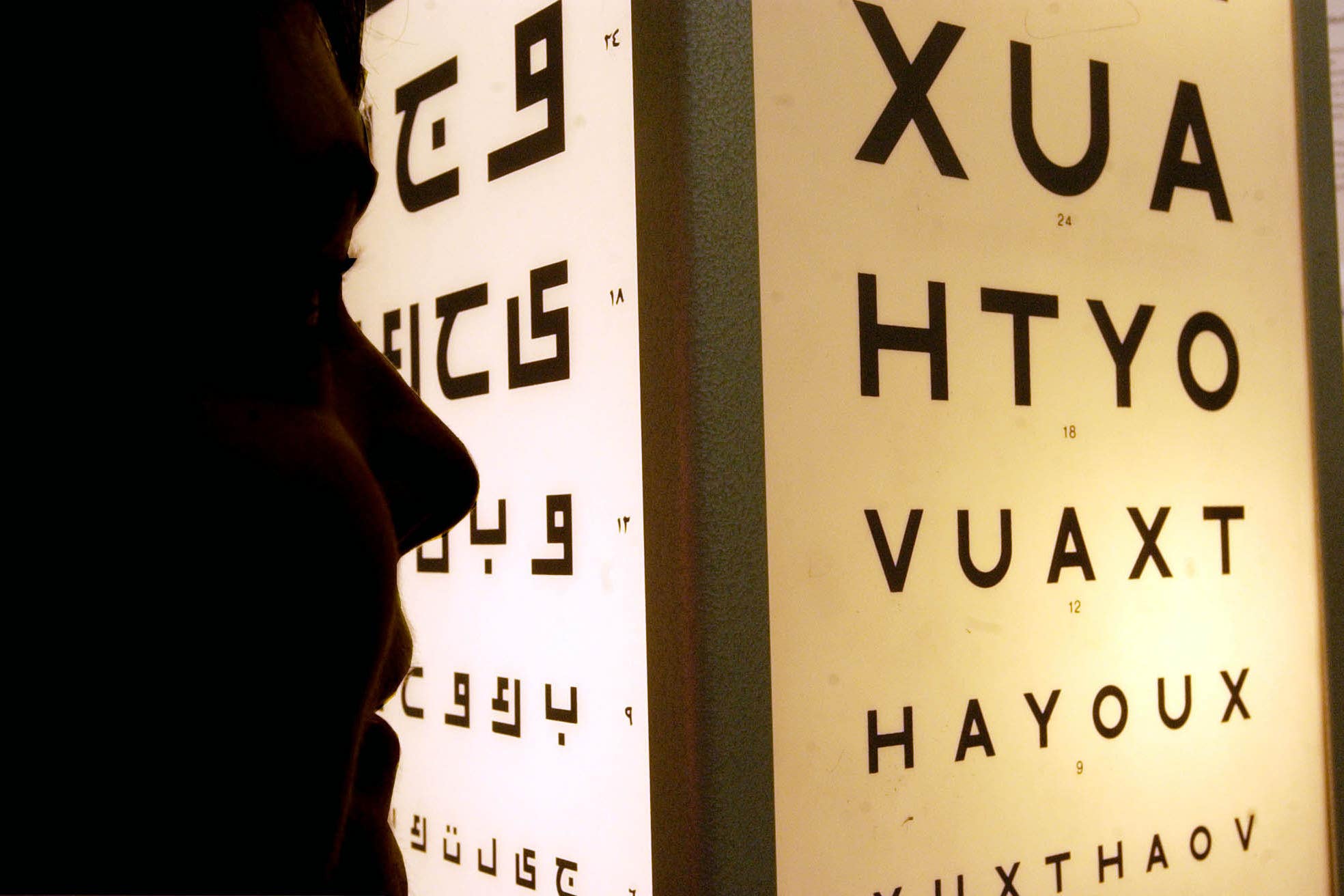Genetics combined with higher education ‘increases risk of short-sightedness’
People who left school aged 15 were less likely to be short-sighted than those who finished their education at the age of 18.

People who get a university degree or go on to higher education after secondary school are at higher risk of becoming short-sighted if they carry a set of five particular genetic variants, according to scientists.
Researchers from Cardiff University have found that those who left school at the age of 15 were less likely to be short-sighted than those who finished their education aged 18.
They identified variants of these five genes – GJD2, RBFOX1, LAMA2, KCNQ5 and LRRC4C – that amplified the effects of myopia in people who spent a long time in education.
The experts said the findings, published in the journal Plos Genetics, raise concerns about the effect spending a lot of time in classrooms may have on children’s eye health.
Jeremy Guggenheim, professor in myopia research at the School of Optometry and Vision Sciences at Cardiff University, who led the study, told the PA news agency: “In the current research we identified a handful of gene variants that alter a person’s risk of near-sightedness, depending on how much education they undergo.
“From past research, we knew these genes make individuals more susceptible to short-sightedness.
“The exciting finding here was that we were able to link education as a lifestyle ‘trigger’ that interacted with genetic risk conferred by these gene variants.”
He added: “Several different lines of evidence point to education being a risk factor for near-sightedness.
“Naturally, policymakers and parents want to encourage children to have a good education, therefore knowing that education is posing a risk to their eyesight is extremely concerning.”
Near-sighted vision is associated with a range of eye disorders, making it a leading cause of irreversible vision impairment in older people.
Prof Guggenheim told PA: “Myopia-related eye conditions such as myopic maculopathy are becoming the most frequent cause of untreatable sight impairments in parts of East Asia where near-sightedness affects most of the population.”
For the study, the researchers used genetic and health data from more than 340,000 participants with European ancestry.
They performed a genome-wide association study – a type of research that helps scientists identify genes associated with a particular disease.
In this case, the researchers were looking to identify genetic variants that make people more susceptible to becoming short-sighted in combination with spending a long time in education.
Prof Guggenheim told PA: “Our findings were consistent with the risk increasing with number of year of schooling people undertook.
There is very good scientific evidence that spending more time outdoors during childhood reduces the chance of becoming nearsighted
“Those who left school at age 15 were less likely to be short-sighted than those who left at age 18.
“We suspect that this relationship between education and near-sightedness is happening throughout childhood, but because almost all children go to school, it is difficult to carry out research to test this idea definitively.”
Prof Guggenheim said there may be ways to help combat or slow down the progression of short-sightedness.
He told PA: “There is very good scientific evidence that spending more time outdoors during childhood reduces the chance of becoming near-sighted.
“This is true even from an early age (from three years old) right through to early 20s.
“Indeed, it may be that some of the risks of near-sightedness associated with education occurs because children are typically indoors for most of the school day.
“For children who are already near-sighted, special glasses and contact lenses are now available that have shown some benefit in slowing the rate of further progression of near-sightedness in clinical trials.”
Prof Guggenheim said there is still much to learn about the role these genes play in eye health.
He told PA: “Our scant knowledge currently suggests the genes may alter how nerve cells signal to one another – possibly in the retina.”
The research was funded by the Fight for Sight (UK) charity.